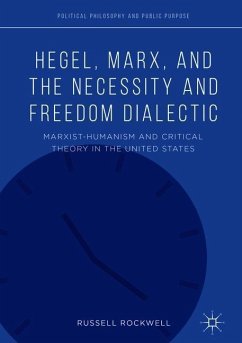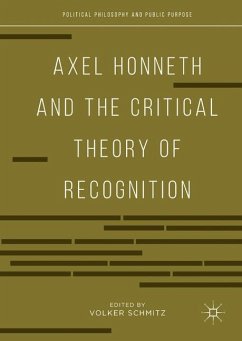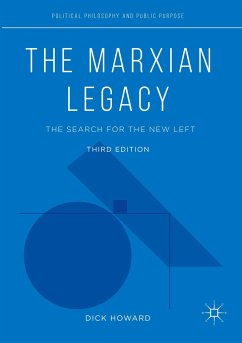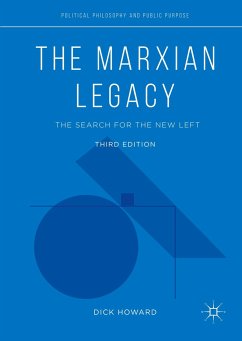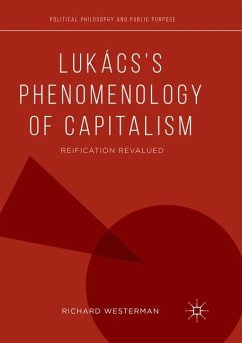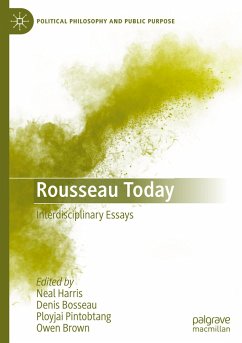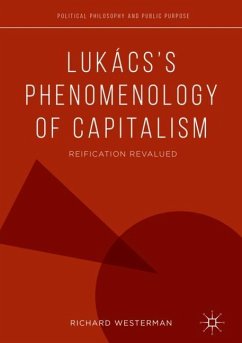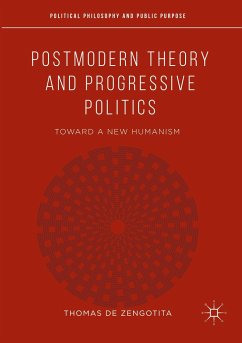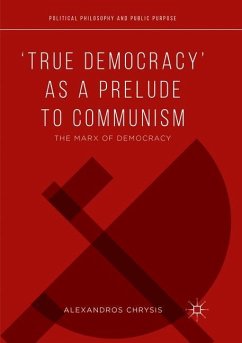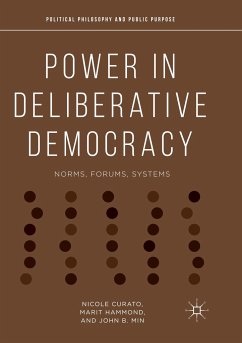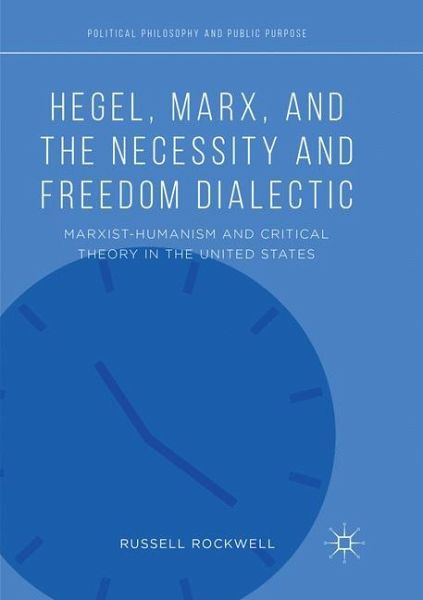
Hegel, Marx, and the Necessity and Freedom Dialectic
Marxist-Humanism and Critical Theory in the United States
Versandkostenfrei!
Versandfertig in 6-10 Tagen
38,99 €
inkl. MwSt.
Weitere Ausgaben:

PAYBACK Punkte
19 °P sammeln!
This book provides close readings of primary texts to analyze the linkage between G.W.F. Hegel's philosophy and Karl Marx's critical social theory of necessity and freedom. This is important for three reasons: first, to understand the significance of the changing relationships of work, society, and critical social theory in the origins of Hegelian-Marxism in the US, as documented in the recently published correspondence between the Marxist-Humanist theoretician Raya Dunayevskaya and the critical theorist Herbert Marcuse; second, to identify the intersections of the Critical Theorists Jurgen Ha...
This book provides close readings of primary texts to analyze the linkage between G.W.F. Hegel's philosophy and Karl Marx's critical social theory of necessity and freedom. This is important for three reasons: first, to understand the significance of the changing relationships of work, society, and critical social theory in the origins of Hegelian-Marxism in the US, as documented in the recently published correspondence between the Marxist-Humanist theoretician Raya Dunayevskaya and the critical theorist Herbert Marcuse; second, to identify the intersections of the Critical Theorists Jurgen Habermas' and Marcuse's influential reinterpretations of Marx's "value theory" of economy and society that enables navigation of the changing relationships of the social and economic spheres in the last century, as developed in Marx's Grundrisse; and, thirdly, to assess the potential of Moishe Postone's renewal of Marx's value theory, largely conceived by the notion of a necessity andfreedom dialectic intrinsic to capitalism.





